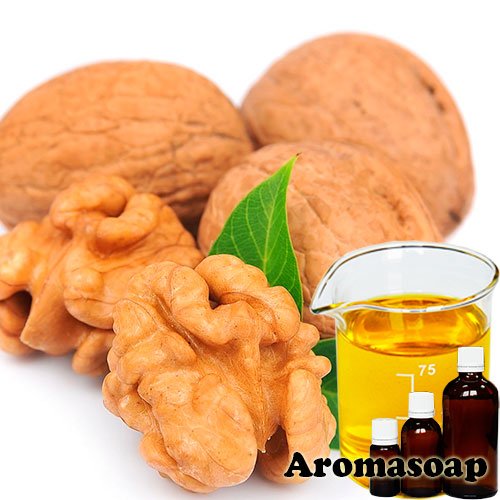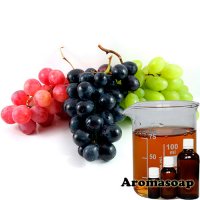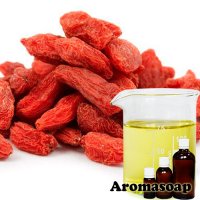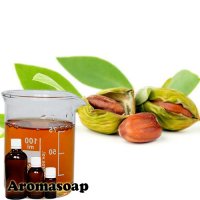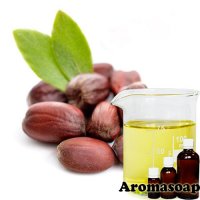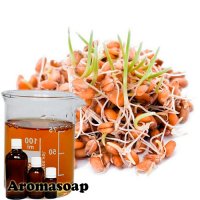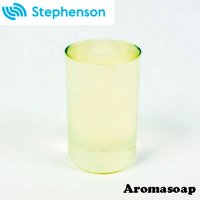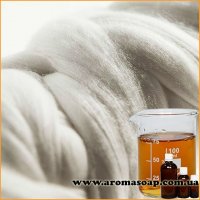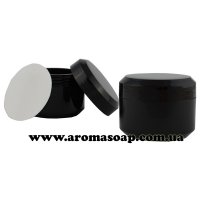Refined walnut oil
Walnut oil is a stable base oil with a predominance of linoleic fatty acid. Absorbs quickly.
- INCI: Juglans Regia (Walnut) Seed Oil Appearance: dark liquid, odorless or with a very slight nutty aroma Country of origin: Germany Fatty acids: linoleic 59.4%, oleic 18.0%, linolenic 11.9%, palmitic 7.6%, stearic 3.0% Saponification number: 191 Iodine number: 150 Density: 0.923 Unsaponifiable fraction: up to 1% Solubility: insoluble in water Type: semi-dry Production method: cold pressing with further purification.
The name “walnut” began to be called during the times of Kievan Rus, when the tree first came to these territories. The nut came to these lands along with the Greek monks. The nut itself was known to the world several thousand years BC.
Walnut oil is used in folk medicine, perfumery, and cosmetics. Painters used it in their work. Avicenna treated heart and lung diseases with it.
Walnut kernels contain more than 65% fatty oil, which is classified as non-drying, as well as minerals and vitamins.
Walnut oil contains Omega-3 fatty acids. Those that a person cannot synthesize on his own.
Before buying walnut oil, choose the intended purpose. Cold pressing produces unrefined oil with rich color and aroma. This oil is taken for internal use.
Unrefined nut oil is often recommended for use in cases of treatment of diabetes mellitus, atherosclerosis, hepatitis, worms, digestive disorders, and weakened immunity.
For cosmetic needs, refined oil is used, which is purified and filtered. It has a very light nutty aroma and is lighter in appearance. Unlike unrefined, it is stored longer.
Walnut oil in cosmetology
Hair nut oil helps restore and establish normal metabolism in skin tissue, regenerates and rejuvenates the skin.
We recommend buying nut oil for those who have sensitive skin, as well as those who react sharply to irritation. It cools the skin and soothes it.
Walnut oil differs in price from other base oils, but remains affordable to most consumers. Including thanks to domestic manufacturers.
Both the oil itself and cosmetics containing nut oil must be stored in a cool, dark place.
Uses of walnut oil for skin:
- Massage mixtures; Creams for dry skin of hands and face; Anti-aging products for mature skin; Eye creams; Tanning products.
Cosmetic properties
Walnut oil is suitable for everyone. And especially for aging skin, sensitive and dry. It spreads well over the skin, is perfectly absorbed and leaves behind a delicate silkiness and velvety feel.
Walnut oil heals and softens the skin, including rough areas. Walnut oil is a good product for a beautiful tan.
Walnut oil is used to obtain essential oils from many plants.
Main cosmetic properties of walnut oil:
- Anti-inflammatory: used to combat acne, damaged and infected skin. Anti-aging: softens skin that becomes dry with age. Nourishes it, makes it soft, elastic, strengthens collagen fibers. Healing: by relieving inflammation, nut oil promotes wound healing. Effective for healing cracks, including chapped lips in cold weather. Moisturizing: strengthens the lipid layer and helps moisture remain even in the deepest layers. Strengthening: has a good effect on hair and nails, eliminating thinness. Nourishes hair and protects nails from brittleness and splitting. Protective: a good antioxidant, therefore effective in combating age spots and caring for damaged hair. The oil is good to use for sunscreens and to ensure a beautiful tan.
Input percentage: 1-15%
- 2-3% hair care (rinses, shampoos); 3-5% product for dry skin; 5% hair mask; up to 7% healing agents, softening creams; up to 15% lip and nail care.
In soap making, the norm for adding walnut oil is up to 10%. If you increase it, the foam level of the soap will decrease. Oil affects the softening and moisturizing properties of soap.
Storage: in a dark container, cool place.
Special instructions: use caution during pregnancy, feeding, allergies, liver and gastrointestinal diseases.

